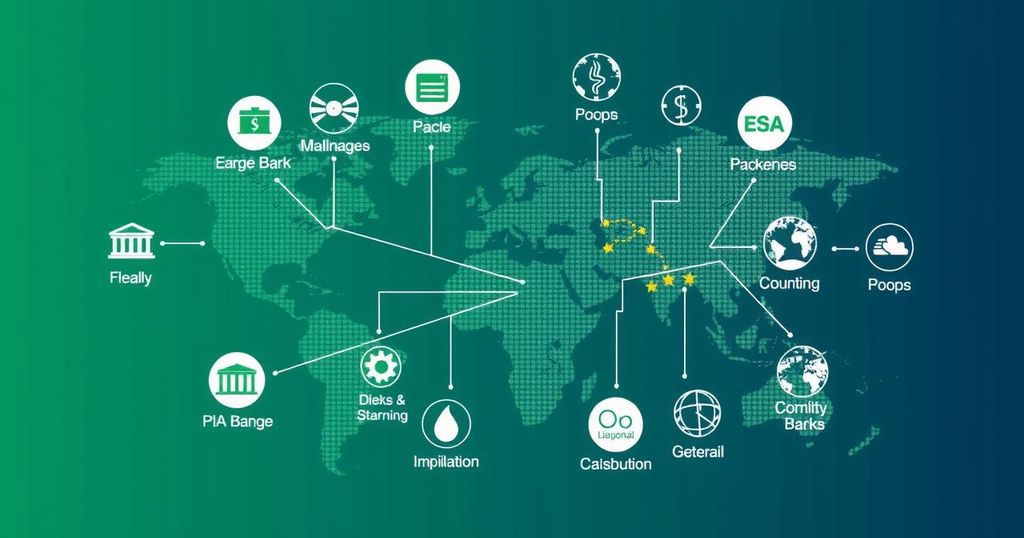Multilateral development banks are crucial in financing climate change initiatives, particularly in developing countries where access to credit is limited. While they have successfully met funding targets, ongoing investments in fossil fuels undermine their climate objectives. Reforms are needed to ensure financial strategies align with sustainable outcomes as discussions on future climate financing intensify.
Multilateral development banks are pivotal in funding efforts to tackle climate change, providing essential financial support primarily to developing nations that face overwhelming debt and limited access to credit. As climate-induced disasters increase globally, these institutions are critical for financing efforts aimed at adaptation and transitioning to renewable energy. With billions of dollars needed annually to mitigate climate-related risks, multilateral banks such as the World Bank have been instrumental in meeting global funding goals, including the 2022 target of $100 billion to assist developing countries. Their ability to leverage strong credit ratings allows them to offer lower interest rates to nations burdened by high private lending costs. However, concerns arise regarding the banks’ investments in fossil fuels, which may contradict their climate goals. While policies have evolved to prioritize renewable energy funding, fossil fuel projects continue to receive significant financial backing, raising questions about the long-term effectiveness of these financing strategies in genuinely combating climate change. Experts emphasize the urgency of aligning financial practices with the goals set by international agreements such as the Paris Agreement, highlighting the need for accountability in climate finance obligations and a shift towards sustainable solutions.
As climate change increasingly manifests through severe weather patterns and natural disasters, developing nations are particularly vulnerable due to their limited financial resources. Multilateral development banks, which are funded by contributions from multiple countries, serve as crucial facilitators of climate finance that allow nations to adapt to and mitigate the effects of climate change. They play a key role in addressing both immediate adaptation needs and the long-term goal of transitioning to clean energy sources, which require substantial investment. Despite their contributions, the continued funding of fossil fuel projects raises significant concerns regarding the overall effectiveness of their climate strategies.
In conclusion, multilateral development banks are essential players in addressing the funding requirements necessary for combating climate change, especially for developing nations. While they have made progress in channeling resources towards renewable energy projects, the ongoing investment in fossil fuels poses challenges to achieving true climate goals. As discussions about future funding mechanisms unfold, a collective aim must focus on accountability and enhanced alignment with sustainable practices to fulfill commitments made under international climate accords.
Original Source: apnews.com






